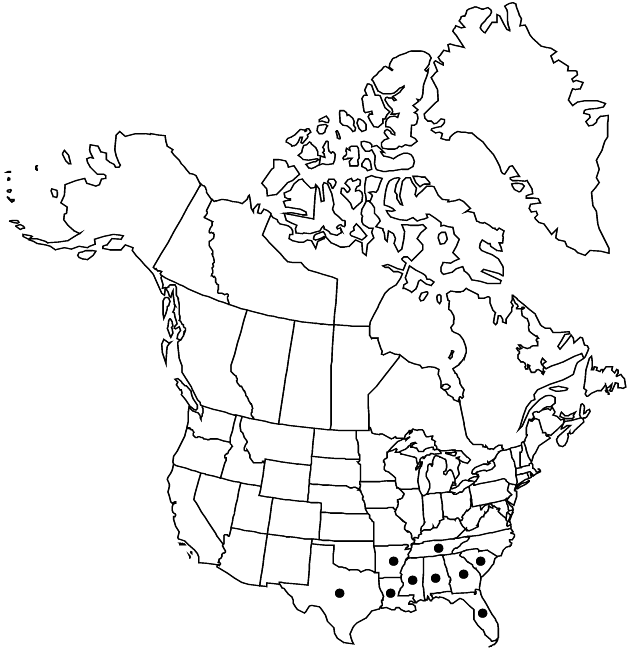Difference between revisions of "Solidago auriculata"
J. Wash. Acad. Sci. 21: 326. 1931.
FNA>Volume Importer |
FNA>Volume Importer |
||
| Line 30: | Line 30: | ||
|elevation=30–300 m | |elevation=30–300 m | ||
|distribution=Ala.;Ark.;Fla.;Ga.;La.;Miss.;S.C.;Tenn.;Tex. | |distribution=Ala.;Ark.;Fla.;Ga.;La.;Miss.;S.C.;Tenn.;Tex. | ||
| − | |discussion=<p>Solidago auriculata was not listed for Oklahoma (C. E. Taylor and R. J. Taylor 1984).</p> | + | |discussion=<p><i>Solidago auriculata</i> was not listed for Oklahoma (C. E. Taylor and R. J. Taylor 1984).</p> |
|tables= | |tables= | ||
|references= | |references= | ||
| Line 54: | Line 54: | ||
|publication year=1931 | |publication year=1931 | ||
|special status= | |special status= | ||
| − | |source xml=https://jpend@bitbucket.org/aafc-mbb/fna-data-curation.git/src/ | + | |source xml=https://jpend@bitbucket.org/aafc-mbb/fna-data-curation.git/src/8f726806613d60c220dc4493de13607dd3150896/coarse_grained_fna_xml/V19-20-21/V20_282.xml |
|tribe=Asteraceae tribe Astereae | |tribe=Asteraceae tribe Astereae | ||
|genus=Solidago | |genus=Solidago | ||
Revision as of 15:22, 18 September 2019
Plants 40–150 cm; rhizomes short, stout or caudices. Stems 1(–3), ascending to erect, velutinous or loosely hirsutulous. Leaves: basal and proximal cauline petioles winged (narrowly so in proximalmost), to 10 cm, bases flared, auriculate-clasping (at least in proximalmost), blades broadly ovate, 35–120 × 30–70 mm, bases cordate, margins serrate, adaxial faces glabrate or sparsely finely scabrous or finely strigose, abaxial pilose on nerves; mid cauline similar to proximal, petioles shorter, broadly winged, strongly auriculate-clasping; distal sessile, blades ovate, 20–40 × 10–20 mm, bases winged, narrowed, auriculate-clasping, becoming ovate and cordate-clasping in arrays, reduced to 10 mm. Heads 50–100, secund, in paniculiform arrays, branches relatively few, short to elongated and arching. Peduncles 1–3 mm; bracteoles linear-lanceolate, minute, grading into phyllaries. Involucres campanulate, 3–4(–5) mm. Phyllaries in 2–3 series, lanceolate, strongly unequal, acute to attenuate, sparsely short strigose. Ray florets 1–3; laminae 1–2 × 0.5–0.75 mm. Disc florets 4–8; corollas 3–3.5 mm, lobes ca. 1 mm. Cypselae 2–2.5 mm, distinctly ribbed, short-strigose; pappi ca. 2 mm (bristles in 2 weak series, shorter than cypsela bodies, inner weakly clavate). 2n = 18.
Phenology: Flowering Aug–Sep(–Oct).
Habitat: Rocky wooded slopes, alluvial soils near streams, in woods
Elevation: 30–300 m
Distribution

Ala., Ark., Fla., Ga., La., Miss., S.C., Tenn., Tex.
Discussion
Solidago auriculata was not listed for Oklahoma (C. E. Taylor and R. J. Taylor 1984).
Selected References
None.